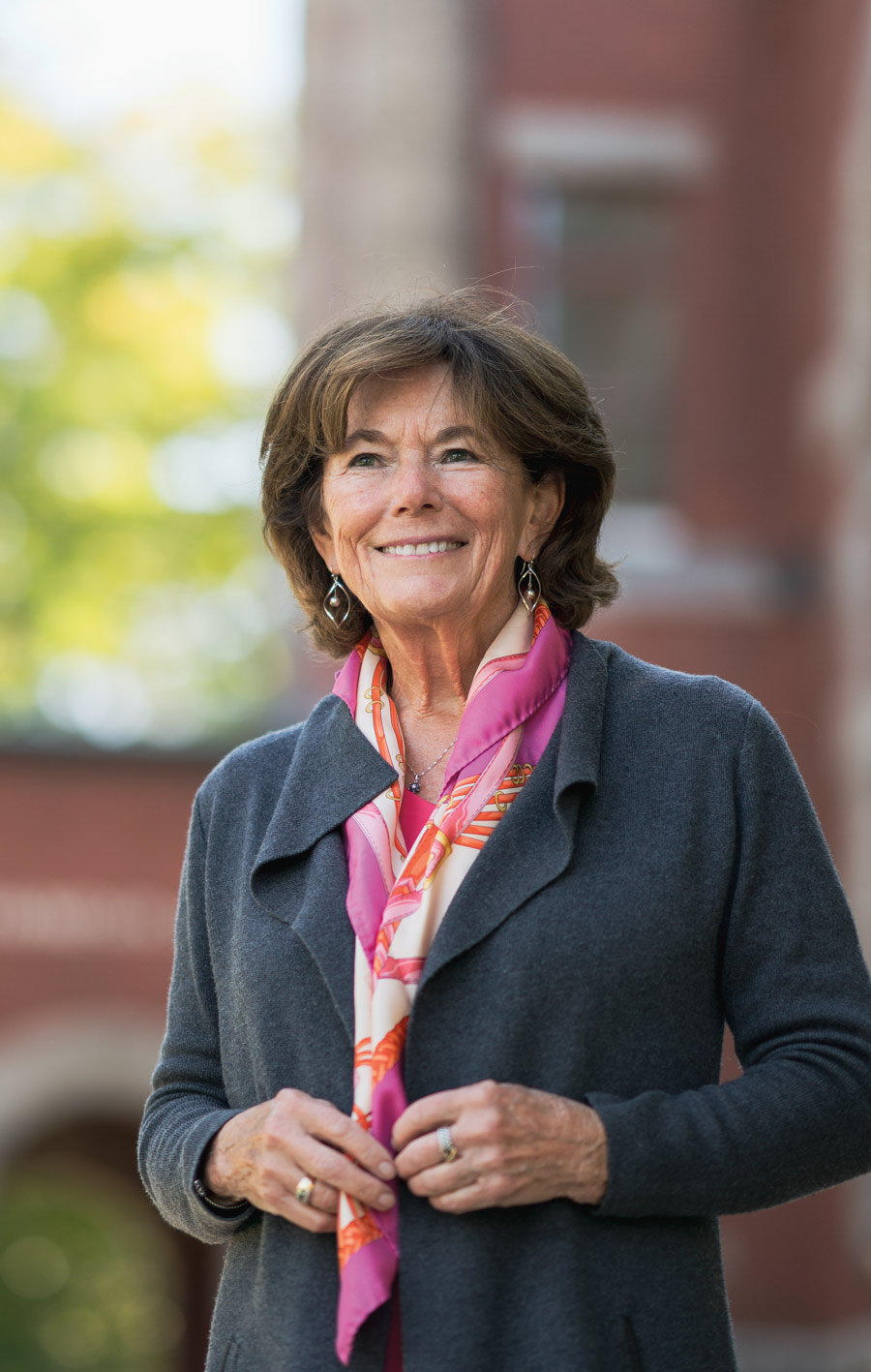Alumni News
Storyteller

So when she, like so many, found herself with time on her hands and not much to do during the COVID lockdown in 2020, she didn’t learn how to make sourdough bread, or adopt a puppy, or take up a new hobby. Instead she did what came most naturally to her — she told a story. But this time, the story she was telling would be her own: She decided the lockdown was a good time to write the memoir she had been thinking about for many years, but never had the time to sit down and start.
“I wasn’t trying to write a book; I just wrote stories as they came to mind,” she says. “I wrote about five hours a day for six or seven weeks, and I was done.” She says harder than writing the book was finding a publisher.
The final product is “Every Life a Story: Natalie Jacobson Reporting,” published last summer (available on Amazon and Audible). In the book, Jacobson writes about her professional life as a groundbreaking broadcast journalist in Boston for nearly 40 years, but also shares in-depth stories of her upbringing in a Serbian immigrant family, her years as a young coed at UNH and building her own family, which includes now-grown children and stepchildren. We caught up with Jacobson recently to ask a few reporter’s questions of our own:
You write about an idyllic four years of college at UNH, but against the backdrop of the turbulent 1960s in America. Can you share more about that? Well of course this was in a time before the whole upheaval with technology; life was simpler, but of course it was a troubled time nationally. As I wrote in the book, there were no drugs and no booze in the dry town of Durham, and everything was less expensive and less political. Yet a war was building that would kill my friends. Our popular president would be assassinated. And of course for women, there were very few professional opportunities.
Times have certainly changed for women in the workforce. Do you think you’ve served as a mentor to other women in journalism? I hope so. I was the first woman to anchor the evening newscast in Boston, and I thought about that milestone happening in my lifetime and in my mother’s lifetime when she remembered a time when women couldn’t even vote. I always thought I could do the best for other women simply by being really good at my job, so that people would stop saying “You know that girl reporter?” and would just say “You know that good reporter?”
Many Boston viewers will remember you as one half of a famed broadcasting duo with your former husband, Chet Curtis. Did anyone advise you to make part of this book a bit of a “tell-all” about your marriage and eventual divorce? You know, the dissolution of my marriage was one of the most painful things I’ve been through in my life. When that fell apart, it was just devastating. I wasn’t sure I’d survive it. Out of respect for our daughters and grandchildren, and honestly out of respect for him and the respect he and I shared for our viewers, I tried to be honest, but I certainly wasn’t going to share details I felt were too personal to us.
What’s facing journalism grads out there? I think (the) media need to regroup and get back to more original reporting, not just taking someone else’s word for something. For my first job in television, I went out and interviewed 400 or 500 people in the city of Boston; I felt I had a finger on the pulse of the different people that made up the city. I couldn’t be more proud than if it were UNH journalism students who are leading the way to a more rational, informed, honest society through good, original, unbiased reporting. You’re a better reporter when you know to whom, for whom and about whom you’re reporting. In journalism, you get to meet all these people, and you get to ask the “why?” Your job is to tell people what’s going on, and in that way, hopefully you’ve enriched those people’s lives. That’s your contribution.
What’s next for you? I’d like to continue contributing in some way, but that’s what I’m figuring out. I know one thing for sure: I’m not done yet.
You can see Jacobson revisit her favorite UNH haunts as she talks about her memoir during a recent episode of New Hampshire Chronicle here: unh.me/natalie-jacobson